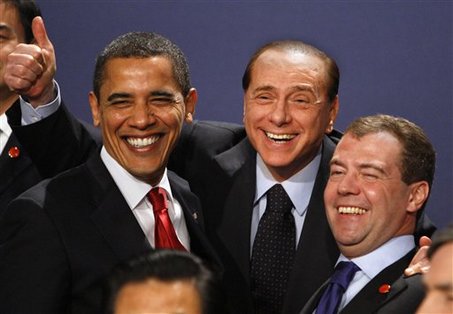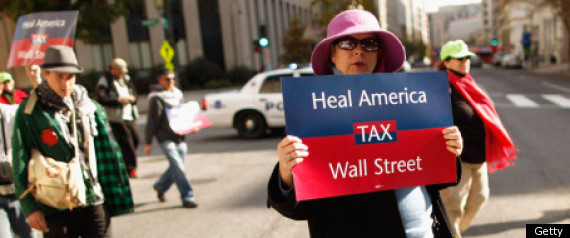CORDOVA, S.C.-- Shawana Busby does not seem like the sort of customer who would be at the center of a major bank's business plan. Out of work for much of the last three years, she depends upon a $264-a-week unemployment check from the state of South Carolina. But the state has contracted with Bank of America to administer its unemployment benefits, and Busby has frequently found herself incurring bank fees to get her money.
To withdraw her benefits, Busby, 33, uses a Bank of America prepaid debit card on which the state deposits her funds. She could visit a Bank of America ATM free of charge. But this small community in the state's rural center, her hometown, does not have a Bank of America branch. Neither do the surrounding towns where she drops off her kids at school and attends church.
She could drive north to Columbia, the state capital, and use a Bank of America ATM there. But that entails a 50 mile drive, cutting into her gas budget. So Busby visits the ATMs in her area and begrudgingly accepts the fees, which reach as high as five dollars per transaction. She estimates that she has paid at least $350 in fees to tap her unemployment benefits.
"It really boggles my mind," she said. "This bank is taking little bits of money out of thousands of pockets, including mine."
Bank of America recently aborted plans to charge ordinary banking customers $5 a month to use their debit cards in the face of national outrage. But the bank has quietly continued to mine another source of fees: jobless people who depend upon the bank's prepaid debit cards to tap their benefits. Bank of America and other financial firms -- including U.S. Bank, Wells Fargo and JP Morgan Chase -- have secured contracts to provide access to public benefits in 41 states. These contracts typically allow banks to collect unlimited fees from merchants and consumers.
In short, the same banks whose speculation delivered a financial crisis that has destroyed millions of jobs have figured out how to turn widespread unemployment into a profit center: The larger the number of people who are out of work and dependent upon the state for sustenance, the greater the potential gains through administering their benefits.
"It's absolutely ridiculous," said Sue Berkowitz, director of the South Carolina Appleseed Legal Justice Center, a Columbia nonprofit that represents low-income people facing foreclosure, food insecurity and other problems. "It should not cost you any more to use a debit card than if they had issued you a check."
For the state, handing Bank of America responsibility for unemployment benefits secured cost savings, said Berkowitz, but they have come at vulnerable people's expense.
"When it comes to ordinary people getting the benefits they have earned, the benefits they need, they don't seem to spend a lot of time worrying," she said.
Bank of America asserts that its prepaid debit cards are a good deal for everyone -- from state taxpayers to people drawing unemployment benefits.
"We have provided prepaid card programs to government agencies for many years," said Jefferson George, a Bank of America spokesman based at the company's Charlotte headquarters. "Clients value the cost savings and increased efficiency and individuals appreciate the ability to receive their benefits payments more quickly and securely."
South Carolina officials say their state's current arrangement with Bank of America, launched in July 2010, has proven a good value for taxpayers. The South Carolina Department of Employment and Workforce, which oversees unemployment benefits, expects to save as much $5 million in check printing and mailing costs annually through its contract with Bank of America, said an agency spokeswoman, Adrienne Fairwell.
She said the state was also attracted to the debit cards as a means of helping jobless people who do not have bank accounts avoid the fees they must pay to cash checks. Roughly one tenth of all South Carolina households -- about 182,000 families -- did not have a bank account as of last fall, according to a recent Pew Research Center report.
But some banking experts say the relevant cost savings are accruing to the banks themselves. New federal regulations cap what banks can collect from merchants when consumers swipe ordinary debit cards at store cash registers. The new swipe fee limits will cut Bank of America's revenues by $2 billion this year, according to Richard Bove, an analyst who follows Bank of America for Connecticut-based brokerage and research service Rochdale Securities.
"Most banks are aiming to recoup 30 to 50 percent through other methods," which include prepaid card fees, said Nancy Bush, an analyst with NAB Research, LLC, a a New Jersey-based investment consulting company, who monitors Bank of America.
Those limits do not apply to most prepaid debit cards, making them particularly attractive to banks, say experts. Prepaid cards are still a small business for banks, but the sector is quickly growing, experts say.
South Carolina now distributes half of all unemployment benefits using Bank of America prepaid debit cards, according to the state department of employment and workforce, with most of the other half delivered through direct deposit.
Neither the state nor Bank of America would disclose the details of their contractual arrangement. A bank spokesman termed the deal "confidential." When The Huffington Post asked the state for for the details of the contract, the spokeswoman required the submission of a formal Freedom of Information Act request. Yet one week after that request was lodged, the state has not provided the contract terms.
But The Herald, a Rock Hill, S.C. newspaper, reported in 2009 that South Carolina pays the bank a 3 cent fee for each transfer it facilitates on a prepaid debit card. The bank collects the same fees from the state for handling direct deposit of unemployment benefits, a state spokesperson said.
Banking experts say the real money lies in the fees the bank collects for a range of services. When the state first contracted with Bank of America, the list of potential fees the bank was allowed to collect included a $1.50 charge when a customer visited a bank ATM or teller more than once per week, a $1.50 charge for use of an out-of-network ATM, a $1.50 charge for speaking to a customer service operator more than once per month, and 50 cents for entering the wrong PIN number at an ATM more than four times or requesting more funds from an ATM than remained on the card.
In May, the National Consumer Law Center named Bank of America prepaid debit cards issued to unemployed people in California and New Jersey the best in the nation. But unemployed card holders in those states don't face the same list of potential fees that exist in South Carolina. One example: California and New Jersey's contracts allow card users to conduct a limited number of free transactions at other banks' ATMs.
After learning about the options that Bank of America gave people using its prepaid cards in other states, South Carolina asked the bank for changes, Fairwell said. In July, unemployed individuals gained unlimited free withdrawals at Bank of America ATMs and one free withdrawal per week at a bank teller anywhere the VISA logo is displayed.
But some fees remain. Bank of America charges prepaid debit card holders in South Carolina $1.50 to visit an out of network ATM. Bank of America also levies a 50 cent fee when a customer uses an ATM to try to withdraw more money than they have in their account more than once in a single week.
"It's not what we would like to see," said Lauren Saunders, managing attorney at the National Consumer Law Center. "It is not as if the bank can legitimately argue it costs them something not to let someone take money out of an ATM."
The state asserts that people who are prudent, timing their withdrawals while adhering to the limits, can secure all of their funds without charge.
"With careful use, South Carolina cardholders can avoid paying any fees," said Fairwell.
But people who rely on such cards to collect their benefits have a difficult time hewing to polite language when they hear such characterizations.
"That's bullshit," said Sandra Gortman, 55, a Columbia resident who says she incurred some $10 in fees within the first weeks of using her card. "Excuse me. But, really, there is no way given the way you have to live when you have very, very little money and copious amounts of stress, to avoid paying fees."
In 2008, Gortman, a long-time bill collector, temporarily left her law firm job to work for the Obama campaign. When the campaign ended the law firm could not afford to keep her on staff, so she started searching for work. In January 2009, she enrolled in the state's unemployment benefits program. At first, her benefits were direct deposited to her Bank of America checking account.
In August 2010, unemployment officials summoned Gortman for a benefits review during which she says she was strongly encouraged to sign up for a prepaid debit card. Gortman resisted. Fearful that the agency would delay her benefits if she did not submit, she says, Gortman signed the form. A few weeks later the card and a brochure came in the mail. The potential fees were disclosed in the fine print, she says, but she initially missed them.
The first week she had the card, Gortman used it to purchase $25 worth of gas at a Columbia gas station. The station held $75 as a deposit while she filled up, and did not refund the balance -- $50 -- until three days later. She says she discovered the charge later when she checked her balance. When Gortman noticed this additional charge, she called Bank of America's automated customer service twice seeking explanation, incurring a $1.50 charge for the second call, she says. When the automated system failed to explain the missing money, Gortman spoke to an operator, incurring an additional 50 cent fee, she said. In July, the bank eliminated customer service fees.
"When you are living on $325 in unemployment benefits a week, believe me, you need and notice every penny," said Gortman. "So I called, I know one week, three or four times before I realized those calls were costing me money. I was, well let's just say, utterly outraged."
In the town of Cordova, where traffic lights are outnumbered by pickup trucks, Busby and her family have been largely dependent on unemployment benefits since June of 2008, when her husband was laid off from a job at a tractor company. The following month, she lost her own job teaching welfare recipients life skills. When their weekly unemployment checks arrived in the mail, she drove north to Columbia or west to Orangeburg, some 35 miles away, to deposit them in their checking account.
The following year, her husband found a full-time factory job, and she secured a temporary position with the Census. But when her job ended in May 2010, Busby went back to the unemployment office to sign up for benefits anew. She received a few checks, and then the state sent her a debit card, though says she has no recollection of applying for one.
Even now that she is cognizant of the fees, she is afraid to switch to direct deposit, fearing a resulting gap in her weekly benefits. Her family's finances are so tight, she says, that any delay puts them behind on the bills.
"There is always, something due -- a light bill that has to be paid, car insurance, the phone," she said. "I get my benefits and that's when we buy food, that very day. There's just a very delicate balance at our house. Nothing, I mean nothing, can go wrong."
By Klaus W. Bender
Translated By Armin Broeggelwirth

- The American $100 dollar bill: Is the CIA printing fake currency to fund its covert operations?
The American secret service, the CIA, could be responsible for manufacturing the nearly-perfect counterfeit 50 and 100-dollar-notes that Washington pins on the terror regime of North Korea. The charge comes after an extensive investigation in Europe and Asia by the Sunday edition of the Frankfurter Allgemeinen Sonntagszeitung of Frankfurt, and after interviews with counterfeit money experts and leading representatives of the high-security publishing industry.
The U.S.-dollar forgeries designated "Supernotes," which are so good that even specialists are unable to distinguish them from genuine notes, have circulated for almost two decades without a reliable identification of the culprits. Because of their extraordinary quality, experts assume that some country must be behind the enterprise.
The administration of George W. Bush officially accused Pyongyang of the deed in the autumn of 2005, derailing Six-Party Talks on Pyongyang’s nuclear weapons program. Since then, tensions on the Korean Peninsula have increased considerably. America charges that North Korea is financing its rocket and nuclear weapons program with the counterfeit "Supernotes."
North Korea is one of the world’s poorest nations and lacks the technological capability to produce notes of such high quality. According to the Frankfurter Allgemeinen Sonntagszeitung, North Korea is at present unable to even produce the won [the North Korean currency]. The sources, which do not wish to be identified, allege that the CIA prints the falsified "Supernotes" at a secret facility near Washington to fund covert operations without Congressional oversight.
(Frankfurter Allgemeine Sonntagszeitung, January 6, 2006)











 The Italian prime minister, Silvio Berlusconi, right, at a G20 news conference with his finance minister, Giulio Tremonti. (Photo: Dylan Martinez/Reuters)
The Italian prime minister, Silvio Berlusconi, right, at a G20 news conference with his finance minister, Giulio Tremonti. (Photo: Dylan Martinez/Reuters) Greek students shout slogans during a demonstration in Athens to protest against a recent education reform bill. Photograph: Aris Messinis/AFP/Getty Images In early October, a peculiar news item barely made its way into the back pages of Greek national press: in the northern city of Veria, a small group of people had started reconnecting the electricity supply of households disconnected from the national grid due to bill non-payment. This kind of solidarity action seemed rather abnormal. Then again, it is difficult to define what constitutes normality in the country nowadays – the upper echelon of political power is in an unprecedented turmoil, and Tuesday's referendum announcement by prime minister George Papandreou, followed by him reportedly preparing to step down, has thrown his political allies and foes into a tailspin. Parliamentary opposition parties are calling for a "national unity" government, snap elections, or a succession of the two; the entire mainstream political spectrum in the country seems to have entered a delirious state of panic. In a stunningly surreal scene, eurozone leaders and global markets are nervously waiting for people in Greece to cast a vote. And yet, at this precise moment, Greek people are realising they are left with what they had at the outset – that is, absolutely nothing to hope for from the mainstream political scene. Take Yannis, a 43 year-old man working in a bank in Athens, who doesn't want to return home because it is going to be cold again. The heating will be off, as nobody in the block can afford the heating prices. His 16-year old daughter, Sophia, does not want to go to school, as she finds little meaning in preparing for her exams: why would she want to enter university knowing full well she will never find a job in Greece, anyway? Or take Eleftheria's father, a 72-year old pensioner leaving in the village of Kymi, who called her today while she was returning home and hesitantly asked her for money to buy his medicine that the state fund no longer covers for. His pension was recently cut by 50%. "But, please," he pleaded, "do not tell your mother." Back in the city, Eleftheria's streets are lined with garbage which has been lying there for more than three weeks. Thousands of workers are to be put on reduced pay schemes across the country and hundreds are being fired on a daily basis. The government has raised already existing taxes and introduced a variety of new ones across the board, while slashing salaries and pensions in both the public and private sector. Official unemployment rose by more than 35% year-to-year and now stands at just under 20%; homelessness is on an enormous increase across the country, while tax on food consumption has shot up from 13 to 23%. At the same time, public transport is being dismantled and hospitals across the country barely function. For the first time, there were no books to be distributed in public schools and universities are in utter disarray. The "bloated" public sector has been portrayed as responsible for all the misery the country has to endure. At the same time, social services have been intentionally abandoned, making it easier for enraged citizens to accept the privatisation of the public sector in return. People here feel the country is gradually sinking, carrying them down a path dug in arbitrariness and injustice. Yet at this very moment – when it is not only the rules of the game that are challenged but the game itself – they seem to feel empowered to act in ways that would not have appeared feasible in the past: they physically attack politicians, mock and cancel military-inspired national public parades and humiliate army officials attending them, participate in neighbourhood assemblies and mass demonstrations (irrespective of the amount of tear gas thrown against them by the police), create grassroots trade unions to demand their labour rights, occupy workplaces, disrupt public services and protest in violent, impulsive, unpredictable ways. In these peculiar times, when there is nothing to lose for so many, everything becomes possible. In the northern Athens suburb of Nea Ionia, the municipality is now actively calling for locals to shun the new tax, offering instructions to avoid its payment on its official website and promising legal support and even volunteers to reconnect potentially disconnected supplies. Grassroots refusal to put up with austerity is quickly gaining momentum, regardless of everyday politics of fear and emergency, or never-ending market crashes. In return, the realisation is sinking in that a possibility for tangible change only lies in people changing their understandings, their habits, the ways in which they do politics: while asked to cast a vote, Greek society sees a major role recast.
Greek students shout slogans during a demonstration in Athens to protest against a recent education reform bill. Photograph: Aris Messinis/AFP/Getty Images In early October, a peculiar news item barely made its way into the back pages of Greek national press: in the northern city of Veria, a small group of people had started reconnecting the electricity supply of households disconnected from the national grid due to bill non-payment. This kind of solidarity action seemed rather abnormal. Then again, it is difficult to define what constitutes normality in the country nowadays – the upper echelon of political power is in an unprecedented turmoil, and Tuesday's referendum announcement by prime minister George Papandreou, followed by him reportedly preparing to step down, has thrown his political allies and foes into a tailspin. Parliamentary opposition parties are calling for a "national unity" government, snap elections, or a succession of the two; the entire mainstream political spectrum in the country seems to have entered a delirious state of panic. In a stunningly surreal scene, eurozone leaders and global markets are nervously waiting for people in Greece to cast a vote. And yet, at this precise moment, Greek people are realising they are left with what they had at the outset – that is, absolutely nothing to hope for from the mainstream political scene. Take Yannis, a 43 year-old man working in a bank in Athens, who doesn't want to return home because it is going to be cold again. The heating will be off, as nobody in the block can afford the heating prices. His 16-year old daughter, Sophia, does not want to go to school, as she finds little meaning in preparing for her exams: why would she want to enter university knowing full well she will never find a job in Greece, anyway? Or take Eleftheria's father, a 72-year old pensioner leaving in the village of Kymi, who called her today while she was returning home and hesitantly asked her for money to buy his medicine that the state fund no longer covers for. His pension was recently cut by 50%. "But, please," he pleaded, "do not tell your mother." Back in the city, Eleftheria's streets are lined with garbage which has been lying there for more than three weeks. Thousands of workers are to be put on reduced pay schemes across the country and hundreds are being fired on a daily basis. The government has raised already existing taxes and introduced a variety of new ones across the board, while slashing salaries and pensions in both the public and private sector. Official unemployment rose by more than 35% year-to-year and now stands at just under 20%; homelessness is on an enormous increase across the country, while tax on food consumption has shot up from 13 to 23%. At the same time, public transport is being dismantled and hospitals across the country barely function. For the first time, there were no books to be distributed in public schools and universities are in utter disarray. The "bloated" public sector has been portrayed as responsible for all the misery the country has to endure. At the same time, social services have been intentionally abandoned, making it easier for enraged citizens to accept the privatisation of the public sector in return. People here feel the country is gradually sinking, carrying them down a path dug in arbitrariness and injustice. Yet at this very moment – when it is not only the rules of the game that are challenged but the game itself – they seem to feel empowered to act in ways that would not have appeared feasible in the past: they physically attack politicians, mock and cancel military-inspired national public parades and humiliate army officials attending them, participate in neighbourhood assemblies and mass demonstrations (irrespective of the amount of tear gas thrown against them by the police), create grassroots trade unions to demand their labour rights, occupy workplaces, disrupt public services and protest in violent, impulsive, unpredictable ways. In these peculiar times, when there is nothing to lose for so many, everything becomes possible. In the northern Athens suburb of Nea Ionia, the municipality is now actively calling for locals to shun the new tax, offering instructions to avoid its payment on its official website and promising legal support and even volunteers to reconnect potentially disconnected supplies. Grassroots refusal to put up with austerity is quickly gaining momentum, regardless of everyday politics of fear and emergency, or never-ending market crashes. In return, the realisation is sinking in that a possibility for tangible change only lies in people changing their understandings, their habits, the ways in which they do politics: while asked to cast a vote, Greek society sees a major role recast.
